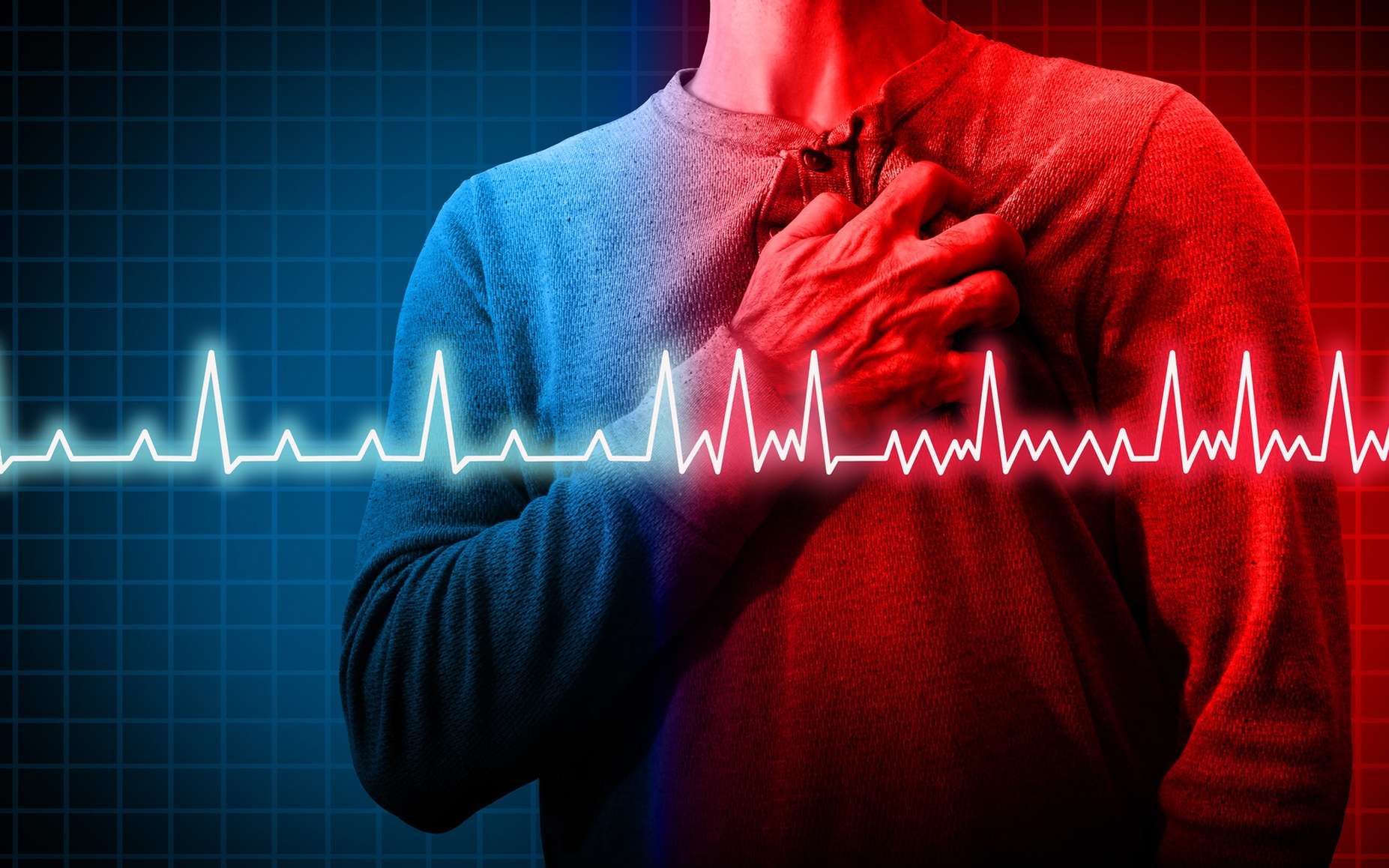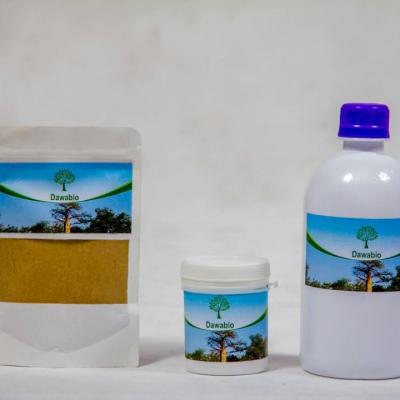
NATURAL TREATMENT FOR ARRHYTHMIA
In the case of an arrhythmia, the heartbeat is irregular . Those affected perceive these disorders as stumbles, misfires or rapid heartbeats.
The heart is not only the engine of our blood circulation, but also a place of emotional sensations. Sometimes the heart can be felt clearly: it seems to jump for joy, but also to suffer with sorrow and want to burst with fear. People particularly exposed to stress can experience nervous heart problems. There are knocking, tingling, or tripping, and the heartbeat is irregular. In addition, there is sometimes a feeling of fear and tightness in the chest as well as the sensation of a "lump" that seems to sit in the neck or behind the breastbone. When stress is the trigger and there is no damage to the heart itself, we are talking about functional cardiac arrhythmias.
Herbal teas natural remedy for cardiac arrhythmia
The natural treatment that we offer to cure cardiac arrhythmia is essentially made up of natural herbal teas. It is an effective, fast and long-lasting natural remedy that will allow you to reduce stress, regulate your heart rate, calm your nervous system and regain normal blood pressure. Its effect is rapid and above all long-lasting, you only have to follow the treatment to put an end to your cardiac arrhythmia. Click on the image below to discover the treatment

Telephone/whatsapp: 00229 99 546 463
How do cardiac arrhythmias develop?
The heart muscle contracts at regular intervals. The clock is the sinus node, which is located in the upper area of the right atrium of the heart. From there, the electrical impulses reach the muscle fibers of the heart via the conduction system. Cardiac arrhythmias can result from both disturbed electrical impulse formation and faulty transmission within the stimulus conduction system.
What is the normal heart rate?
Under resting conditions, an adult's heart beats 60 to 80 times per minute. With excitement and physical exertion, the heartbeat rate, that is, the pulse, increases. On the other hand, it slows down during sleep and recovery. There are different forms of rhythm disturbances in which this normal rhythm is lost. The most common heart rhythm disturbances include extrasystoles, which is the heartbeat on top of or outside of the normal rhythm. They occur to some extent in every person, including a healthy heart. Treatment is only necessary if this level is exceeded and symptoms appear.
What are the causes of irregular heartbeats?
Cardiac arrhythmias can occur with nervousness, fear, stress and excitement, for example. Likewise, excessive consumption of caffeinated beverages like cola, tea, or coffee can cause cardiac travel. Heart rhythm disturbances can also be a side effect of various medications.
It is not uncommon for tactical disturbances to occur as a result of febrile infections. In particular, myocardial inflammation can impair the conduction of stimuli in the heart. Other possible causes of irregular heartbeat are:
Heart
attack Heart valve abnormality
High blood pressure
Electrolyte disturbances (for example, lack of magnesium or potassium)
Thyroid dysfunction
What are the symptoms of an irregular heartbeat?
Fast heartbeat and stumbling are the most common symptoms that occur with an arrhythmia disorder.
Some patients also complain of dizziness, drowsiness and fatigue, but also of heart aches, cardiac stings and chest tightness. In severe cases, fainting with brief loss of consciousness or even seizures may occur.
When should you go to the doctor?
Occasional extrasystoles occur in every human being and rarely require treatment. Cardiac arrhythmias associated with symptoms such as tingling or chest pain, shortness of breath or dizziness should always be clarified - preferably by a cardiologist. The doctor listens to the heart with the stethoscope and also measures the blood pressure and pulse. Electrocardiography (ECG) and echocardiography are also important diagnostic methods for determining arrhythmias.
Are you afraid when you see that your heart is beating and beating faster than it should and you don't know what to do to get rid of your palpitations as soon as possible? Fortunately, there are methods by which they can go away just as suddenly as they appeared.
- As soon as you notice an irregular heartbeat, sit down and lift your legs a little. Breathe deeply and slowly, letting your stomach expand as you breathe in air. If you focus on this slow, deep breathing, your heart will calm down and your rhythm will return to normal.
- if the palpitations persist, use the Valsalva method: tighten your nose, close your mouth and try to breathe out. You will of course not be able to force your body to push (almost like with the birth of a child). The increase in blood pressure will cause the heart to “reset” and most likely its heart rate will return to normal. Like the previous method, coughing increases the pressure in the chest.
- Take a few sips of cold water. It's not clear exactly why this helps, but in some people, the palpitations pass instantly. One theory is that the water pushes the esophagus slightly, which calms it.
- You can also use cold water to spray your face as the shock helps you recover.
How to prevent palpitations?

- eat fish, especially salmon and mackerel, which have a high level of omega 3 fatty acids
- avoid overeating. If you force your body to digest a huge amount of food at one time, more blood is needed to be pumped into your stomach, and your heart may suffer.
- Cut out more caffeine, because in many people it causes palpitations.
- If you have regular palpitations, you are probably a stressed person who does not get enough rest. Thus, they appear as an alarm signal triggered by the body. Try to take at least 30 minutes a day to meditate to relax your body and mind.
- try to calm yourself down with the help of flavors, lavender being the most suitable.
- sleep at least 7 hours each night. Fatigue certainly leads to palpitations.
- Do at least 30 minutes of aerobics 3 or 4 times a week, whether it is walking, running, swimming, tennis or any other type.
- warm up for at least 10 minutes before moving and lie down, another 10, after that.
- Many people who suffer from palpitations lack magnesium, so try to take 400 milligrams of magnesium twice a day.
- It also uses coenzyme Q10, which is sold in pharmacies without a prescription and which helps regulate the heartbeat, especially if you have heart disease.
- If you do not eat too much fish, daily take 2 to 3 grams of fish oil, rich in omega 3.
- Taurine amino acid helps regulate electrical impulses in the heart. Take a supplement of up to 3 grams per day as this substance requires a prescription.
- Many drugs taken in pharmacies without the advice of a doctor can cause palpitations. If their package leaflet says they should not be used for heart disease or high blood pressure, it is good to avoid them, even if you don't have any heart problems to know about.
- some bronchodilators for asthma also increase the risk of palpitations;
- Avoid pills that contain ma huang or ephedra. And antimistamines, like claritin, should be avoided.
Prediction
The prognosis for cardiac arrhythmias varies widely, many minor arrhythmias are harmless, but other disorders are dangerous and even fatal, such as: Ventricular fibrillation. Immediate emergency treatment is needed here. Otherwise, cardiac arrhythmias can be kept at bay with usual treatment methods.
- - -
Has the LESPLANTESAFRICAINES team answered all your questions through this article?
Leave us a comment in response or contact us via WhatsApp at +229 99 546 463.
- - -